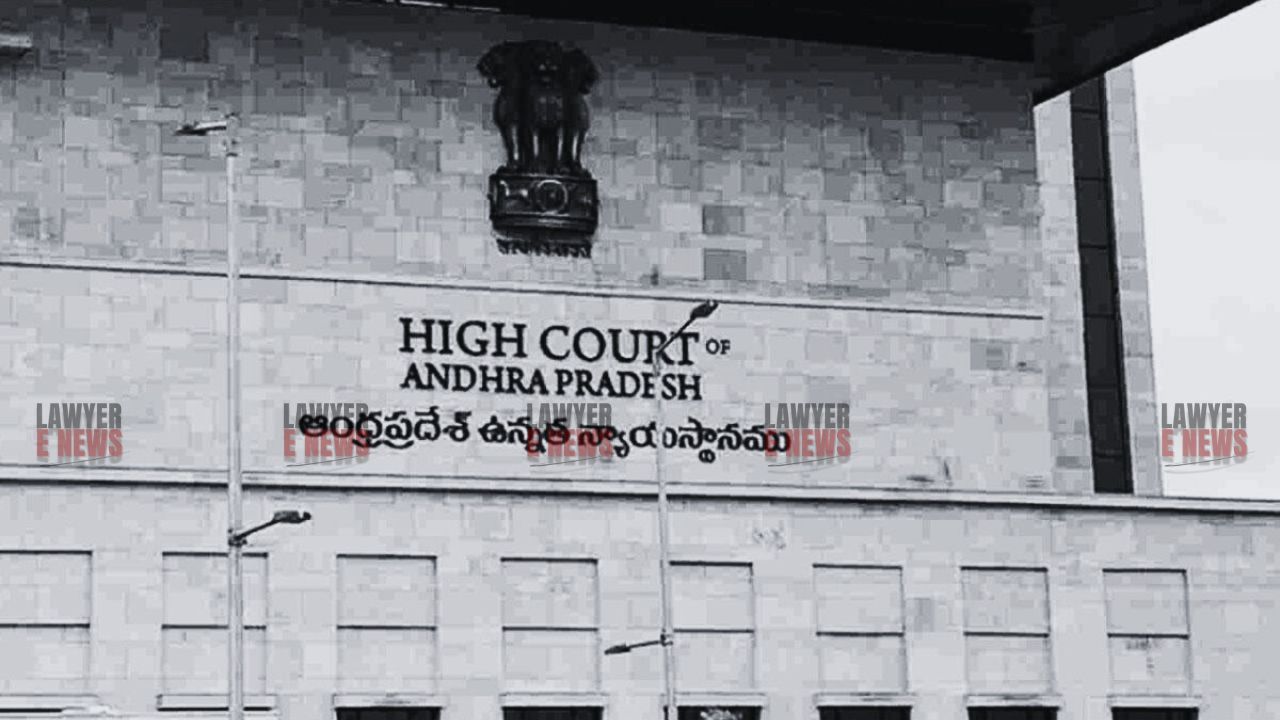-
by Admin
15 February 2026 5:01 PM



The Andhra Pradesh High Court, in a recent ruling, upheld the dismissal of a suit seeking declaration of title and possession of a disputed property. The appellant, Kambhampati Bhaskara Seshachala Srinivas, challenged the trial court’s decision, arguing that the property, bequeathed under a will, should have devolved upon him. However, the High Court confirmed the trial court’s judgment, emphasizing that the plaintiff failed to establish a clear title to the property as required by law.
The case revolves around a dispute over the property originally owned by Devarakonda Suramma, which was her Sthridhana property. Suramma executed a will in 1967, bequeathing portions of her property to her two grandsons, Venkata Anjaneya Seshachala Bhaskara Rao and Kambhampati Venkata Rama Krishna Prabhakara Rao. Upon the death of Suramma in 1968, the property was divided between the two, with Bhaskara Rao receiving B schedule property and Prabhakara Rao receiving C schedule property, each for their lifetime with the remainder to pass to their male descendants.
Following the death of Bhaskara Rao in 1984 without issue, the appellant, being the son of Prabhakara Rao, claimed that the B schedule property should devolve upon him as the only surviving male progeny. The suit was filed after Bhaskara Rao’s widow, the first defendant, refused to vacate the property, leading to this prolonged legal battle.
The court reiterated the principle that in a suit for declaration of title, the burden lies squarely on the plaintiff to establish a clear and undisputed title to the property. The court noted, “In a suit for declaration of title and possession, the plaintiff must succeed on the strength of their own title, not on the weakness of the defendant’s case”. The High Court found that the appellant failed to provide sufficient evidence to prove that he held clear title to the B schedule property.
The court closely examined the will executed by Suramma and found that it did not support the appellant’s claim. The will clearly indicated that the property was to pass to the male descendants of each grandson, but it did not explicitly state that the share of Bhaskara Rao, who died without issue, would pass to the appellant. The court emphasized that the plaintiff’s father’s share of the property (C schedule) was distinct and separate from Bhaskara Rao’s share (B schedule), and the appellant, being the son of the other grandson, could not claim rights over Bhaskara Rao’s portion.
The court also addressed the appellant’s argument that the first defendant, Bhaskara Rao’s widow, was merely a licensee in the property. The court found no evidence to support the claim that her possession was permissive or that she held the property as a licensee after her husband’s death. The court stated that possession by the widow after the husband’s death did not automatically confer title to the plaintiff.
The court applied established principles of property law, particularly those relating to the interpretation of wills and the vesting of property interests. It emphasized that the will’s recitals did not provide for the B schedule property to pass to the plaintiff upon Bhaskara Rao’s death. The court upheld the trial court’s findings, concluding that the plaintiff had no legal grounds to claim title to the property.
The Andhra Pradesh High Court’s judgment reaffirms the importance of clear and definitive evidence in suits for declaration of title. By upholding the trial court’s dismissal of the suit, the High Court underscored that property claims must be firmly grounded in law and clearly supported by the terms of any will or legal document. This ruling serves as a reminder of the legal standards required to establish property rights, particularly in cases involving complex family arrangements and bequests.
Date of Decision: August 21, 2024
Kambhampati Bhaskara Seshachala Srinivas v. Devarakonda Maha Lakshmi & Others
